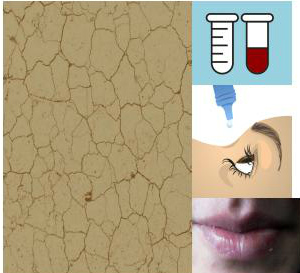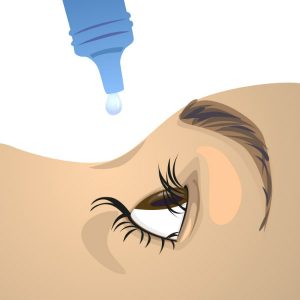Summer is over and many of you will be starting isotretinoin (commonly called “Roacutan”) treatment for acne at this time of year. Although it is not without side effects, the good news is that they are all well known and dose-dependent (the higher the dose taken per day, the greater the effect). The most common side effects of isotretinoin resolve when the dose is lowered or the treatment is stopped.
In this article, I discuss the most common side effects of isotretinoin, as well as when they occur and what precautions to take in each case. Remember, however, that if you have any concerns, it is best to discuss them with your doctor (whether a dermatologist in person or an online dermatologist) before starting treatment.
DRY LIPS DUE TO ISOTRETINOIN
This is undoubtedly the most common side effect, as it occurs in all people taking isotretinoin. It has been observed to begin as early as the first two weeks of treatment. It is important to be aware of this and to use petroleum jelly or lip balm from the beginning of treatment.
DRY SKIN DUE TO ISOTRETINOIN

Isotretinoin, which is used to treat acne, reduces the production of sebum in the skin. It is therefore normal to feel that your skin is drier than usual, and you may even develop eczema. This is much more noticeable in people with atopic dermatitis. In any case, with or without dermatitis, it is essential to use moisturizers daily to avoid itching or the appearance of eczema patches that can result from treatment. A recent study has shown that it is common to notice skin dryness on the face around the third week of treatment and on the body around the fourth week.
After the 3rd week of treatment, the skin begins to feel dry.
Just as the skin dries out, so do the mucous membranes, which can occasionally lead to nosebleeds (epistaxis). This is one of the most common adverse effects; as long as it is not excessively frequent or bothersome, it is not usually necessary to stop treatment for this reason. If you get nosebleeds very frequently, I advise you to discuss this with your dermatologist as a dose reduction could help to improve this discomfort.
Isotretinoin speeds up the rate at which the skin regenerates; this causes the skin to be thinner and more delicate during treatment. This sensitivity makes sunburn more likely than normal. Therefore, it is necessary to use sunscreen daily, even on cloudy days.
To avoid sunburn, sunscreen should be used on a daily basis.
The fragility of the skin is also evident when using wax, so this method of hair removal is not recommended. You can use a razor, laser, or cream.
It is estimated that this increased skin sensitivity begins to be noticeable before the fourth week of treatment.
DRY EYE DUE TO ISOTRETINOIN
Isotretinoin also affects certain glands that lubricate the eye, so dry eyes may be experienced in the first few weeks. For this reason, the use of contact lenses is not recommended, especially at high doses. Artificial tears may help prevent dry eye discomfort.
Isotretinoin may cause dry eyes. This may be relieved with artificial tears or by reducing the dose.
Treatment may cause difficulty seeing at night. This is called nyctalopia and is reversible, i.e. it will go away when the treatment is finished. Most people do not notice this, but it is important to be aware of it in professions such as pilots or drivers, as it can make it difficult to do your job at night.
MUSCLE DISCOMFORT FROM ISOTRETINOIN
It is normal to feel discomfort in the lower back, ribs, or muscle fatigue, which may occur during the fourth or fifth week of treatment. In cases where the discomfort is severe, your dermatologist may reduce the dose of isotretinoin or prescribe an anti-inflammatory treatment to control it until your acne is completely treated.
It is normal to experience some muscle or joint discomfort during treatment with isotretinoin.
CHANGES IN ANALYTICAL RESULTS DUE TO ISOTRETINOIN

We order this analysis to look for changes in transaminases (which indicate how the liver is working), cholesterol, and triglycerides. However, it is rare to find changes in these values, and unless there is a very large change in the results, we usually do not stop the treatment, knowing that the values normalize in all cases at the end of the treatment.
DEPRESSION AND ISOTRETINOIN
Although it appears on the label and is always talked about, it is still unclear whether there is a causal relationship between taking isotretinoin and depression. No study has shown that isotretinoin causes depression. In fact, there are studies that indicate that isotretinoin improves personal satisfaction in those who take it.
Isotretinoin has not been shown to cause depression. However, it is prudent to monitor for any noticeable changes in mood during treatment.
In any case, although it has not been proven whether or not there is a direct relationship, and knowing that it is unlikely to occur, it seems prudent to be aware of whether there is a clear change in mood in someone being treated with isotretinoin and, if so, to discuss it with the dermatologist.
Here is a specific post about isotretinoin and depression (in Spanish).
IN CONCLUSION…
Isotretinoin is the most effective treatment for acne. It is a safe drug, but it is not without risks and side effects. Most of them are controllable and in all cases reversible at the end of treatment. It is important to be aware of them in order to make the treatment as tolerable as possible.
Do you have side effects related to your isotretinoin treatment?


